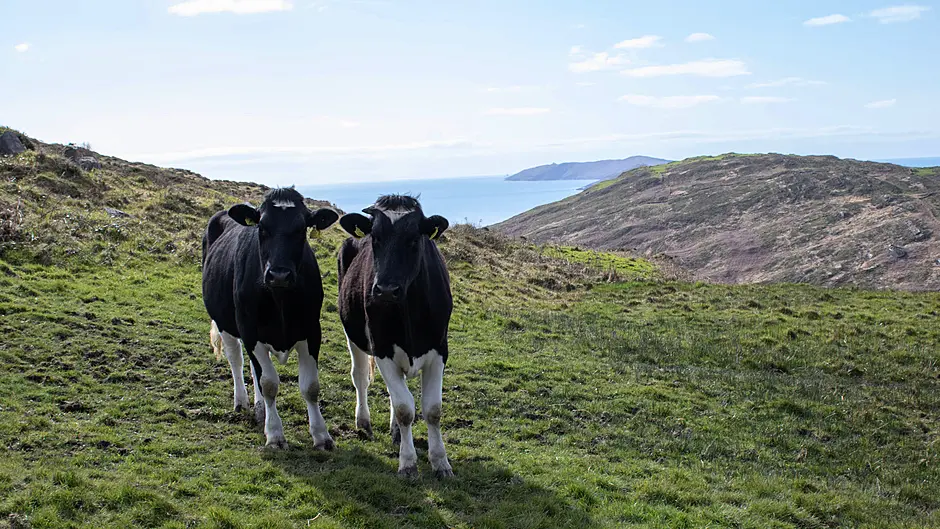WITH bovine TB still causing some problems across West Cork, farmers are being advised of their financial options if their farm experiences a TB breakdown.
The resulting restrictions that come from a breakdown can create significant financial pressure, with a number of key steps needed for farmers to protect their financial situation, according to agri-business firm Ifac.
Those steps include:
- Maintain detailed records of all affected animals
- Contact your RVO promptly regarding any planned animal movements
- Consider the impact on cash flow and discuss options with your financial advisor
- Review your eligibility for all available compensation schemes
- Keep track of testing dates and requirements to minimise the restriction period
- Engage your bank early, especially if you have repayment obligations that may be affected by the breakdown.
‘In this scenario, there are several compensation schemes available through the Department of Agriculture, Food and the Marine (DAFM), to help manage the economic impact,’ said Philip O’Connor, head of farm support at Ifac.
 Philip O’Connor, head of farm support, Ifac.
Philip O’Connor, head of farm support, Ifac.
‘Understanding and actively engaging with these support mechanisms can help manage the financial impact of a TB breakdown on your farm business. Early engagement with DAFM and proper planning is essential for maximising available supports while maintaining business continuity.’
The primary compensation mechanism available is through the On-Farm Market Valuation scheme, which applies to all reactor animals identified through TB testing. This scheme operates with specific valuation ceilings, with a maximum of €3,000 for standard reactor animals, €4,000 per breakdown for stock bulls, and €5,000 per breakdown for pedigree stock bulls.
Farmers can claim tax relief for compulsory stock disposal if they replace the animals within four years and defer the tax even if the stock is not replaced. For in-calf animals, the compensation rate is determined by post-mortem examination at the slaughter facility.
There are also a number of tax implications of any compensation received for the compulsory disposal of cattle.
Where a farmer receives any income under the compulsory disposal of cattle, that farmer may elect to have the ‘profit’ they make on the disposal of those animals deferred over a four-year period. The profit is the excess of the proceeds on the disposal of the animals over the value that they were held in the accounts.
The four-year period can commence in the year the compulsory disposal of the cattle occurred, or it can commence the following year.
For the four-year period, the farmer is deemed to have taxable income of 25% of the profit deferred, and tax is payable. However, if the farmer intends to reinvest the ‘profit’ on the disposal, then they will also be deemed to have stock relief equal to the deferred income.Essentially, they will not pay tax on this deferred income if they fully reinvest within the four years. If they don’t fully reinvest all of the profits on buying replacement stock, then any shortfall will come off the deemed stock relief in the later years.
Where an election to defer the income is made but within the four-year period, the farmer decides to fully destock and cease farming entirely, then in the year of cessation, any amount of the deferred income which has not yet been charged to tax will become subject to tax in that year.
Careful thought needs to be given to the decision to fully cease farming if the election has been made, as the additional income in the year of cessation may bring the farmer up from the low rate of tax to the high rate of tax.
The Income Supplement scheme provides monthly payments for farmers who lose a significant portion of their herd.
You become eligible when: More than 10% of your entire herd is removed as reactors, or at least 10% of your dairy cows are removed as reactors.
The monthly rates are: €55 per reactor animal for dairy cows, €38.09 per reactor animal for suckler cows and €25.39 per reactor animal for other cattle.
This supplement is paid automatically by DAFM without application, calculated monthly in arrears from the date your herd meets the eligibility threshold. The supplement is taxed as normal income and not compensation for the disposal of stock.
The Hardship Grant is also available, and operates during the winter period (November 1st to April 30th. To apply, request form ER97 from your Regional Veterinary Office (RVO). This grant is taxed as normal income and not compensation for the disposal of stock.
In severe cases where full or partial depopulation is necessary, additional compensation is available for the mandatory four-month stock-free period – Dairy herds (cows/in-calf heifers/stock bulls over 12 months): €220 per animal.
Suckler herds (cows/in-calf heifers/stock bulls over 12 months): €152.36 per animal. All other animals: €76.16 per animal. This income can be deferred.








